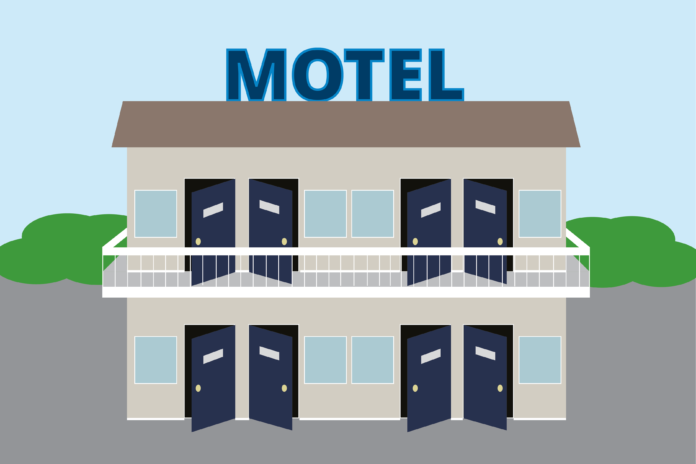Through federal initiative Project Roomkey, county temporarily houses 143 vulnerable homeless individuals in motel rooms
On April 3, California Gov. Gavin Newsom launched Project Roomkey, a program started by the Federal Emergency Management Agency to house the country’s homeless population in motel rooms during the COVID-19 pandemic. The California government issued a press release stating that the state’s homeless population would be sheltered to promote health and safety.
“Today, Governor Gavin Newsom announced that California has become the first state in the nation to secure FEMA approval to provide safe isolation capacity for tens of thousands of people experiencing homelessness in California in order to protect them and the state from COVID-19,” the press release reads.
A video posted on Newsom’s Twitter explains that the service is specifically meant to protect high-risk homeless individuals from becoming sick and needing hospitalization.
“California is securing thousands of rooms in hotels and motels for extremely high-risk homeless individuals to help flatten the curve and preserve hospital capacity,” according to the video.
Ian Evans, the Yolo County Alcohol and Drug administrator and Forensic and Homeless Team Clinical manager, described the county’s efforts with Project Roomkey as of April 8.
“As of today, we’ve been able to move 143 individuals into motel rooms throughout the county,” Evans said. “We’re setting up master leases with motels, and we have two master leases already secured.”
Master leases will last for 30 days, with the ability to be extended if the crisis continues.
The press release reported that nearly 870 homeless individuals had already been sheltered throughout the state.
“The state’s effort, Project Roomkey, has set an initial goal of securing up to 15,000 rooms for this purpose and county partners have moved 869 homeless individuals most vulnerable to COVID-19 off the street, out of shelters, and into isolation,” the press release reads.
At the time of the press release, Yolo County had sheltered 110 of the 869 individuals, according to Evans. He explained why Yolo County accounted for such a large percentage of the total.
“We were able to mobilize so quickly because of the relationships that providers, the cities and the county had built over the years trying to address homelessness,” Evans said. “We were in a good place to meet this crisis head-on, in that respect.”
According to the press release, each motel in the program will be outfitted with essential services for homeless individuals.
“Every hotel/motel within Project Roomkey will include essential wraparound services, such as custodial, laundry, security and support staff,” the press release reads.
Evans described the services provided in Yolo County specifically, including daily delivered meals and a telephone staff for physical and mental support.
“We’ve partnered with Yolobus and the food bank to do daily food deliveries to all the individuals who are in the motels,” Evans said. “We’re working with a lot of our local provider agencies who are dedicating staff to provide some on-site support and some telecommuter support. Folks will call each individual in the motel to check in on them.”
The press release included a quote from Newsom highlighting the importance of giving the homeless a place to isolate, as these efforts will decrease the total number of cases in the state.
“Homeless Californians are incredibly vulnerable to COVID-19 and often have no option to self-isolate or social distance,” Newsom said. “By helping the most vulnerable homeless individuals off the street and into isolation, California can slow the spread of COVID-19 through homeless populations, lower the number of people infected and protect critical health care resources.”
Evans echoed a similar sentiment, underscoring the need to protect homeless individuals and decrease the amount of critical patients who need hospitalization.
“The overall goal is around getting our most vulnerable clients safe and getting services wrapped around them during this time,” Evans said. “As a result of this effort, we’re hoping that we reduce the impact on the healthcare system so our hospitals don’t get overburdened.”
Written by: Eden Winniford –– city@theaggie.org











